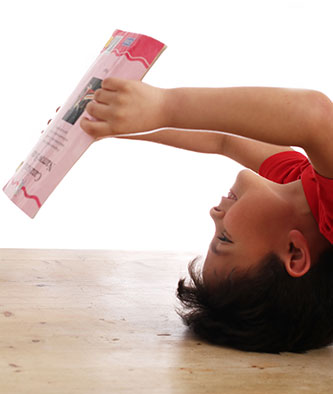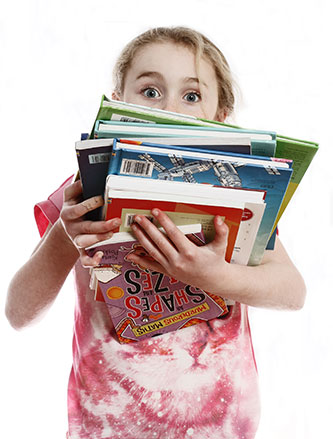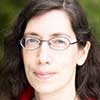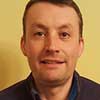Primary school is made up of the end of the Early Years Foundation Stage (EYFS) followed by Key Stage 1 (KS1) and Key Stage 2 (KS2):

- Early Years Foundation (Reception)
- KS1 (years 1 and 2)
- KS2 (years 3, 4, 5 and 6)
The Primary Curriculum (age 5 - 11)
Primary schools in England started teaching the new National Curriculum in September 2014. A wide range of subjects and topics are taught during primary education and schools assess childrens progress throughout their learning.
Core Subjects:
All maintained schools, including Foundation Trust, Voluntary Aided and Voluntary Controlled, must follow the National Curriculum and teach the following core subjects:
- English
- Maths
- Science
As well as core subjects, primary schools must also teach foundation subjects, which are:
- Art and Design
- Computing
- DT (design and technology)
- History
- Geography
- Music
- Physical Education (must include swimming)
Foundation subjects listed above are taught in all primary school key stages, with the addition of a ‘foreign language’ at KS2.
Free schools and academies are exempt from following the National Curriculum; however, they must teach English, Maths and Science. Private schools are also exempt from following the National Curriculum, but they must ensure that their pupils learn Languages, Maths, Science and IT. Their curriculum must also include Physical Education, as well as Arts and Social education. Independent schools may use the curriculum and exams from ISEB (Independent Schools Education Board).
KS1
 In year 1, pupils take the phonics screening check.
In year 1, pupils take the phonics screening check.
The phonics screening check takes place in June. The teacher uses it to assess each child’s ability to read phonics to an appropriate standard by the age of 6. During the assessment, the teacher will ask each child to read 40 words aloud. The result helps teachers identify the children who need extra help so that they can receive the support necessary to improve their reading skills. These children will then be reassessed in year 2, along with any children who missed the test in year 1.
At the end of year 2 children take national Standard Assessment Tests (SATs) and are assessed in:
- Reading
- English grammar, punctuation and spelling
- Maths
SATs tests in KS1 are not timed and are spread out over a longer period during normal lesson activities so that pupils don’t feel like they are being assessed. The teacher will also take work in years 1 and 2 into consideration to build an accurate picture of how well your child is doing. Science will be assessed informally during years 1 and 2. The full, teacher-assessment report about your childs progress in Maths, English reading, English writing and Science should be sent to you by the end of the summer term.
KS2
In year 6, pupils take the national Standard Assessment Tests (SATs).
Teachers also assess pupils in English, Maths and Science. English tests include reading, grammar, punctuation and spelling, whilst Maths includes mental arithmetic or ‘mental Maths’.
SATs take place in mid-May and take around 5 ½ hours to complete. However, the tests are spread over a week. Results are received by schools in July.
At the end of year 6, your child’s school will give you a report on your child’s progress in English, Maths and Science, as well as your child’s SATs results and general progress in other subjects.
Tests and Average level attainment
National tests or SATs (Standard Assessment Tests) are taken by primary children at the end of each key stage. These tests take place at the end of year 2 (7 year olds) and year 6 (11 year olds). These children sit tests in Maths, English reading and English grammar, punctuation and spelling. Tests are marked externally and the results reported to schools and parents at the end of the year.
Pupils used to be awarded a level, such as 2a, 3b and 4c but KS2 SATs papers have been updated for May 2016 to be fully in line with the new National Curriculum. As well as the content and structure of the papers being tweaked, the marks reporting method has too.
Scaled scores
From May 2016, children will not be given a level and will instead be given a scaled score.
Scaled scores are simply a different way of reporting student’s exam marks. The raw score is the total number of marks a pupil scores in a test, based on the number of questions they answered correctly. The raw score is then converted into a scaled score to ensure that accurate comparisons of pupil performance can be made from one year to the next. The scaled score ranges from 85 to 115 in the KS1 tests and 80 to 120 in the KS2 tests. Any score below this range is referred to as N (no scaled score).
Range of scaled scores
Schools will receive a raw score, a scaled score and either NS (expected standard not achieved) or AS (expected standard achieved) for each pupil. The range of scaled scores available for each KS1 or KS2 test is the same and will stay the same in future years:

KS1
- 85 is the lowest scaled score that can be awarded
- 100 is the expected standard achieved
- 115 is the highest scaled score
KS2
- 80 is the lowest scaled score that can be awarded
- 100 is the expected standard achieved
- 120 is the highest scaled score
Expected standards for KS1 and KS2
A pupil awarded a scaled score of 100 or more has met the expected standard in each test.
A pupil awarded a scaled score of 99 or less has not met the expected standard in the test.
If a pupil has not scored enough marks on the test to demonstrate sufficient understanding of the KS2 curriculum for the subject they will not receive a scaled score. The scaled score field will be left blank and the outcome of the test for the pupil will be ‘NS’, expected standard not achieved.
The interpretation of these scores is as follows:
Below 100: Those that score below 100 will have not reached the nationally set “expected standard” and will need further support and development before secondary school.
Within close proximity of 100: Those that get 100 will have reached the national standard that is expected of them.
Above 100: Those children that score significantly higher than 100 will have exceeded the standard that’s expected of them.
11 Plus test
If you want your child to go to a grammar school, then they will also need to sit the 11 plus exam. The three grammar schools in North Yorkshire are Ripon Grammar, Ermysted and Skipton Girl’s High School. The North Yorkshire Local Authority manages the admission for Ermysted and Ripon Grammar. Skipton High School, on the other hand, manages its own selection test. The test for Ermysted and Ripon Grammar takes place in early September, whilst Skipton Girl’s High School takes place later in the month.
There can be up to four different “disciplines” used for the 11 Plus tests – Verbal Reasoning, Non-Verbal Reasoning, Maths and English. Test paper combinations can vary considerably around the country. For instance, Ripon Grammar and Ermysted only test pupils in Verbal and Non–verbal reasoning, whilst Skipton Girls’ High School tests pupils in Maths, Verbal Reasoning and English.
Private School Entrance Exam
If you want your child to attend a private school, it’s most likely they will have to sit an entrance exam. Some schools prepare their own test and others may use the Common Entrance Exam. This is a standard test set by the Independent Schools Examination Board (ISEB).
Each school marks the test and set their own pass mark; thus pass marks can vary and the more desirable the school the higher the pass mark.
Entrance tests are taken around 6 to 9 months before entry. If your child already attends a private junior school, then it is likely that the school will be coaching them for the entrance exam. However, children attending state schools may need private tuition to prepare them.
How tutors can help
 Personal tuition may improve your child’s grades, help them in areas that they are struggling or just catch up on work missed. As tutors work with pupils ‘one to one’ they can quickly identify areas where a pupil may need support and put individual strategies in place to improve.
Personal tuition may improve your child’s grades, help them in areas that they are struggling or just catch up on work missed. As tutors work with pupils ‘one to one’ they can quickly identify areas where a pupil may need support and put individual strategies in place to improve.- Tutors can develop your child’s core skills in English (reading, spelling and grammar) and Maths.
- Tutors can help to prepare pupils for exams such as SATs, 11+ or entrance exams. The support given may be academic, improving exam technique or a well needed confidence boost.
- Private tuition can help to build self-esteem in pupils by providing one to one support and giving extra reassurance where appropriate. This increase in confidence may help some pupils settle in better at school and can also encourage pupils to tackle everyday challenges in a positive manner.




